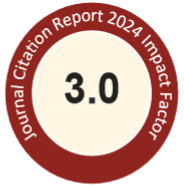Abstract
Traditional herbal products are heterogeneous in nature. They impose a number of challenges to quality control, quality assurance and the regulatory process. Most herbal products on the market today have not been subjected to drug approval process to demonstrated their safety and effectiveness. To gain public trust and to bring these products into the mainstream of today's health care system, the researchers, the manufacturers and the regulatory agency must apply rigorous scientific methodologies and clinical trials to ensure the quality and lot-to-lot consistency of the traditional herbal products. Since the identities of the final products are not well defined and there are essentially no purification steps involved in the production of herbal products, the quality and lot-to-lot consistency of the products rely mostly on the quality control of source materials and their manufacturing into final products. Using modern technologies, the quality and consistency of heterogeneous herbal products can be monitored. A well designed clinical trial is the method of choice to prove the safety and effectiveness of a therapeutical products. Manufacturers of the herbal products must adhere to the requirements of Good Manufacturing Practices (GMPs) and pre-clinical testing before these products can be tested on humans. The basic principle and design of the clinical trials for herbal products are the same as those for single component chemical products. A number of randomized, double blinded controlled studies have been carried out using herbal formulations. These studies have proven the effectiveness of the herbal products tested and shown little side effects. Thousands of years of traditional use can provide us with valuable guides to the selection, preparation and application of herbal formulations. To be accepted as viable alternatives to Western medicine, the same rigorous methods of scientific and clinical validations must be applied.
Recommended Citation
Lin, Y.
(1997)
"Modernization of Chinese herbal medicine through scientific and clinical validations,"
Journal of Food and Drug Analysis: Vol. 5
:
Iss.
4
, Article 6.
Available at: https://doi.org/10.38212/2224-6614.2927

